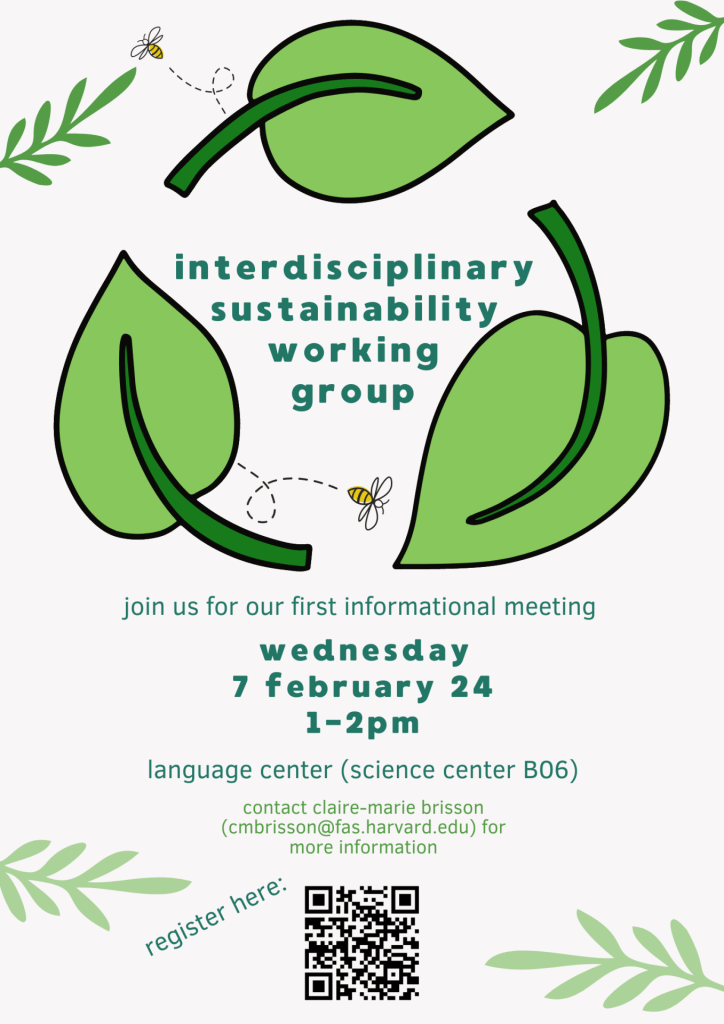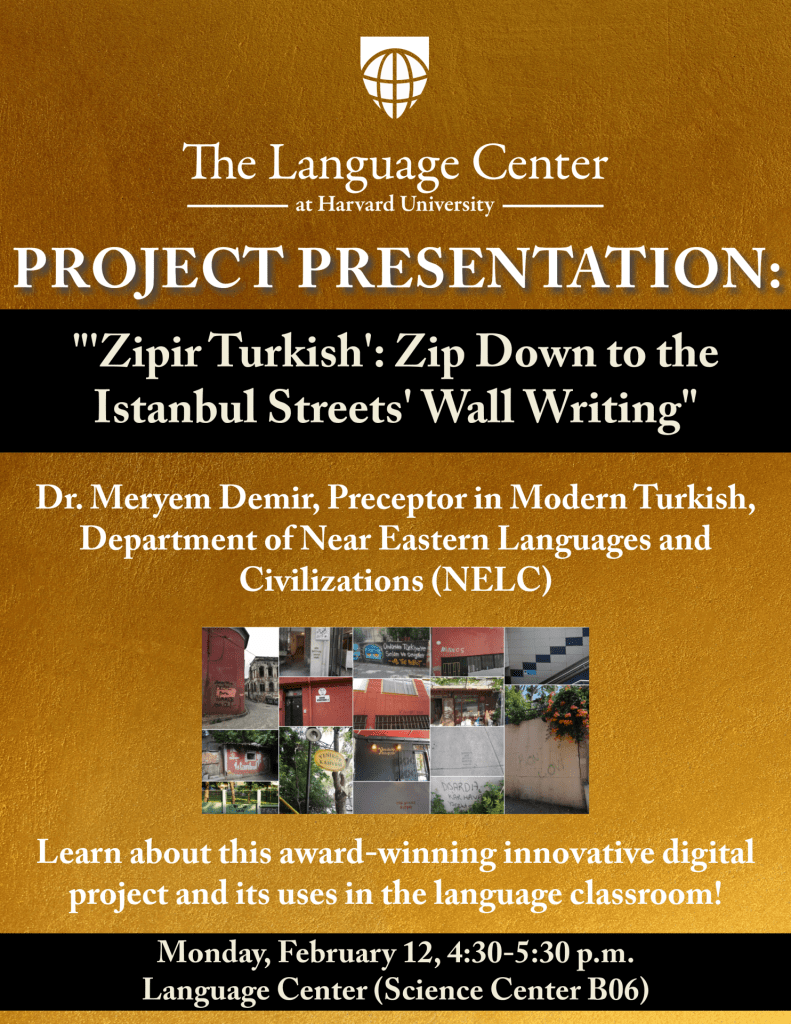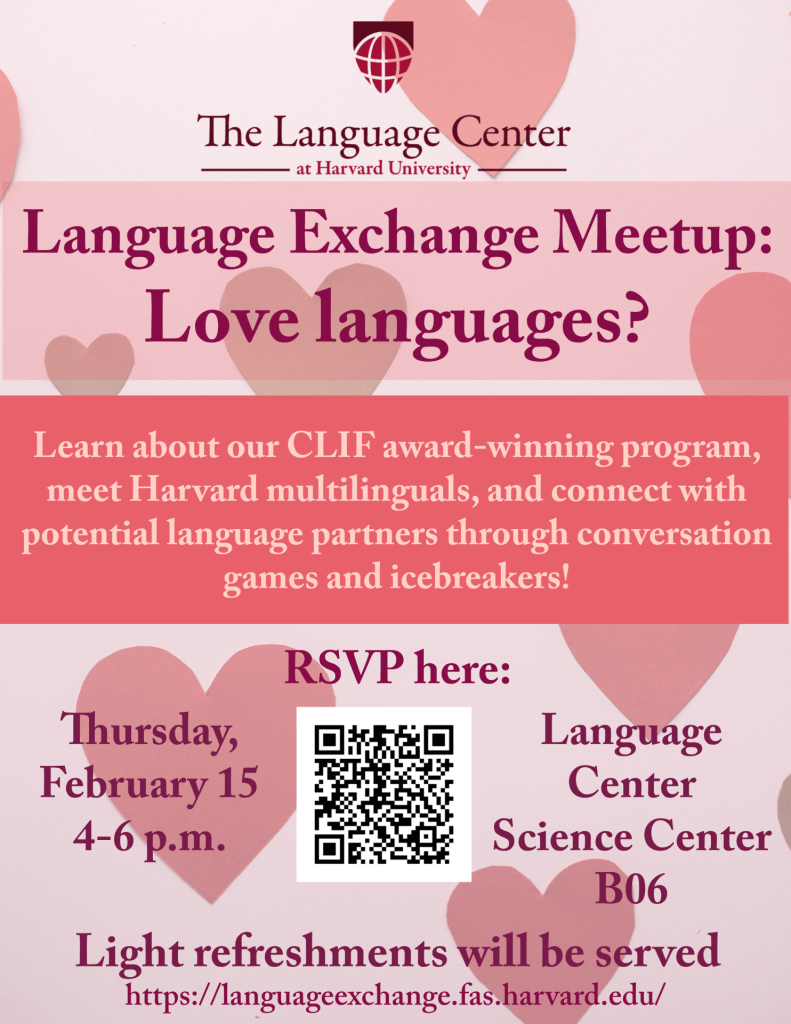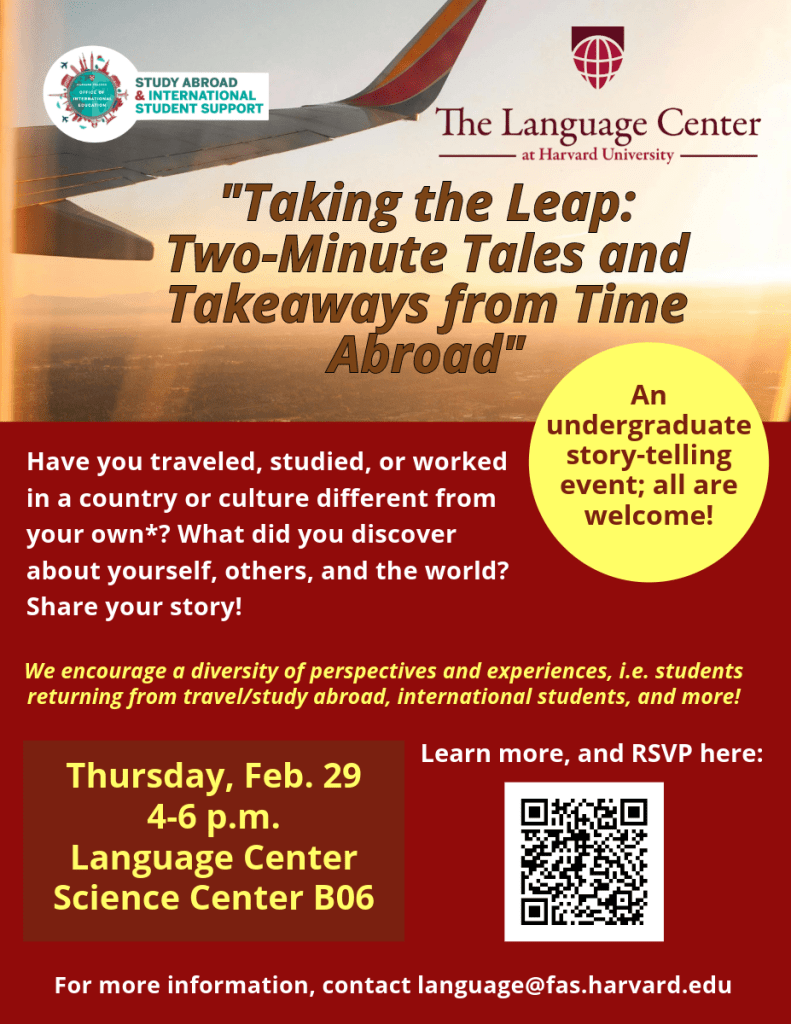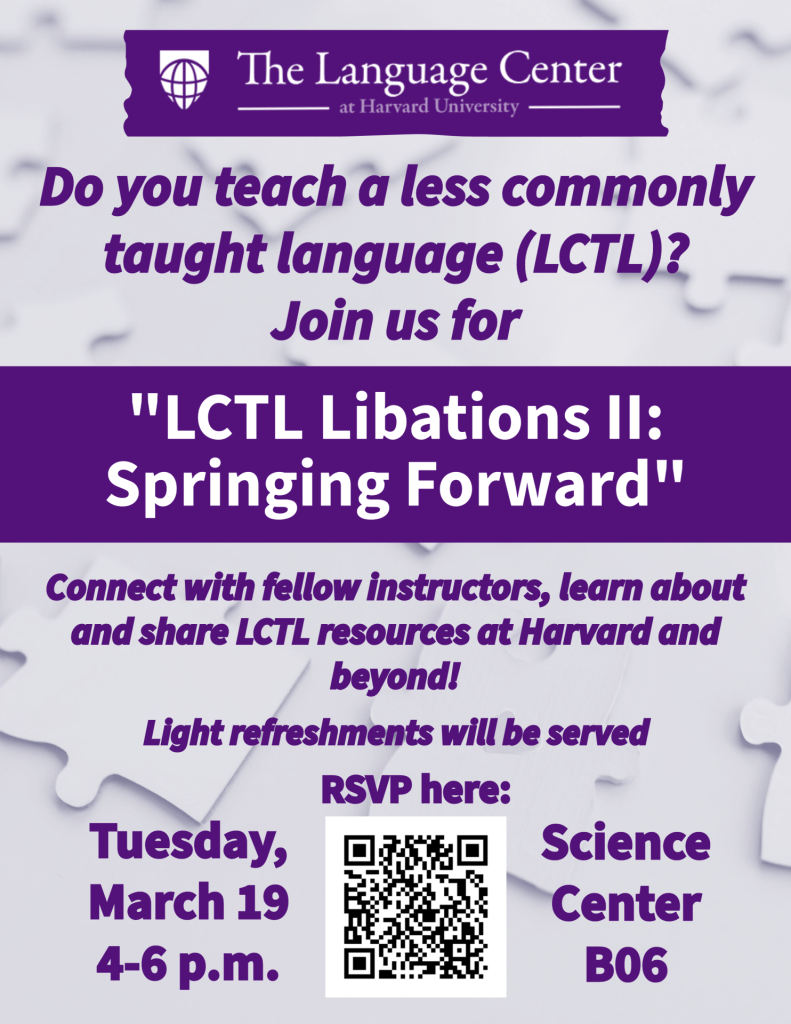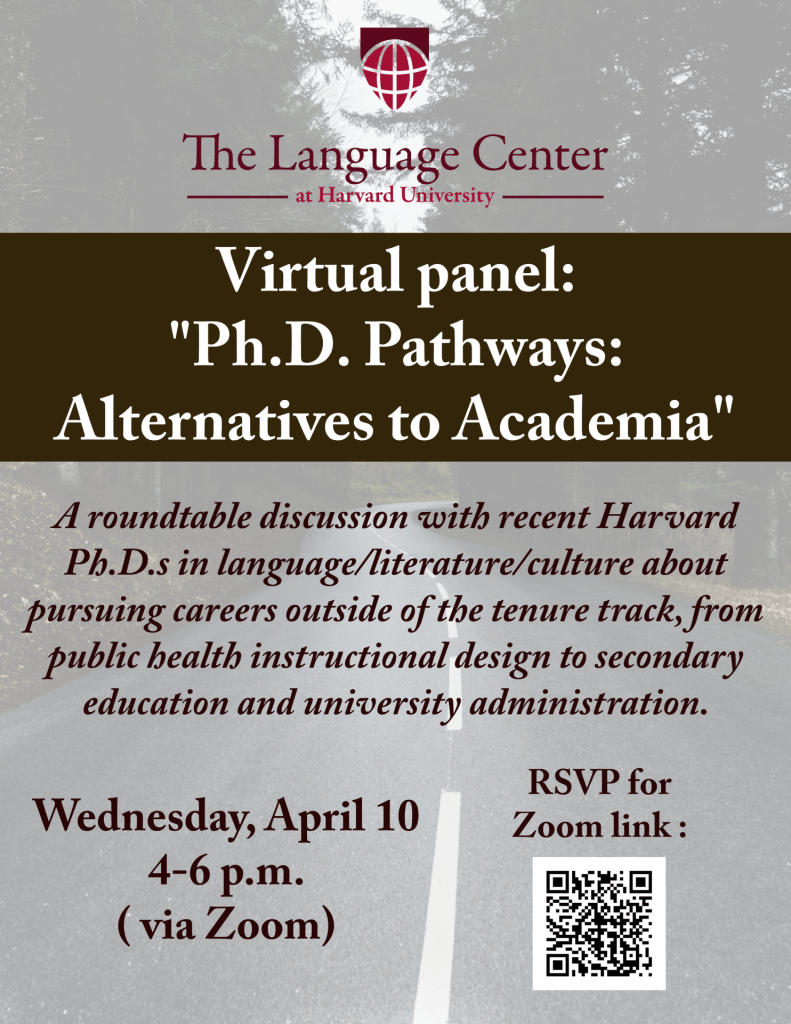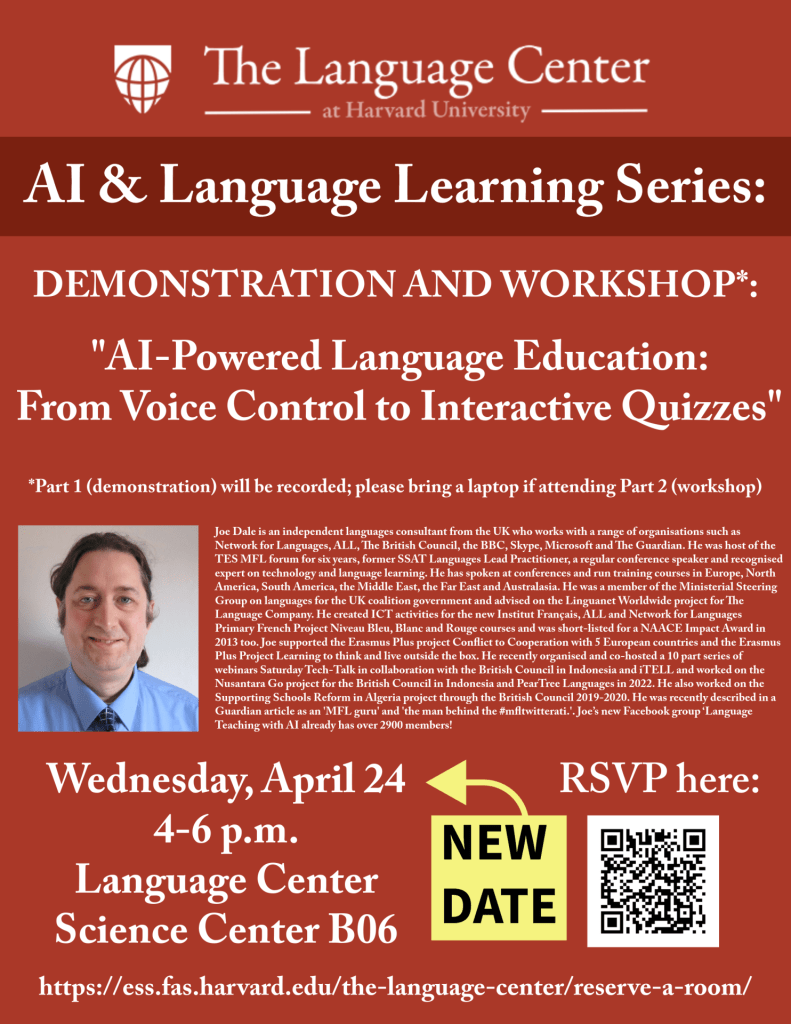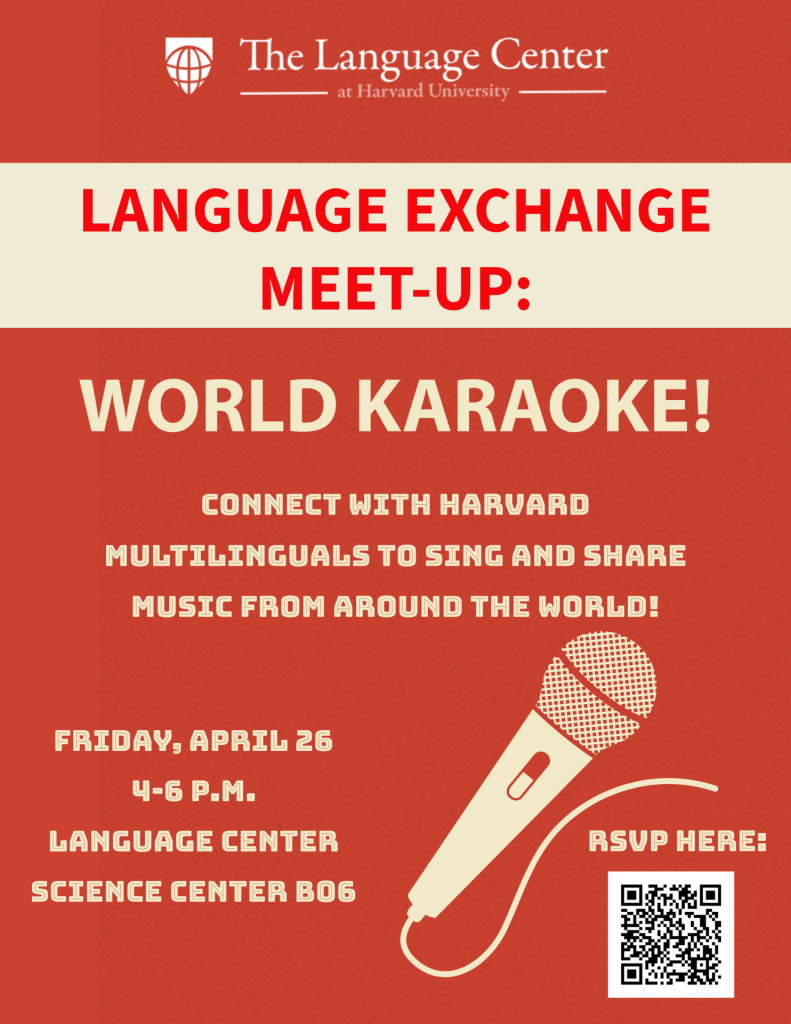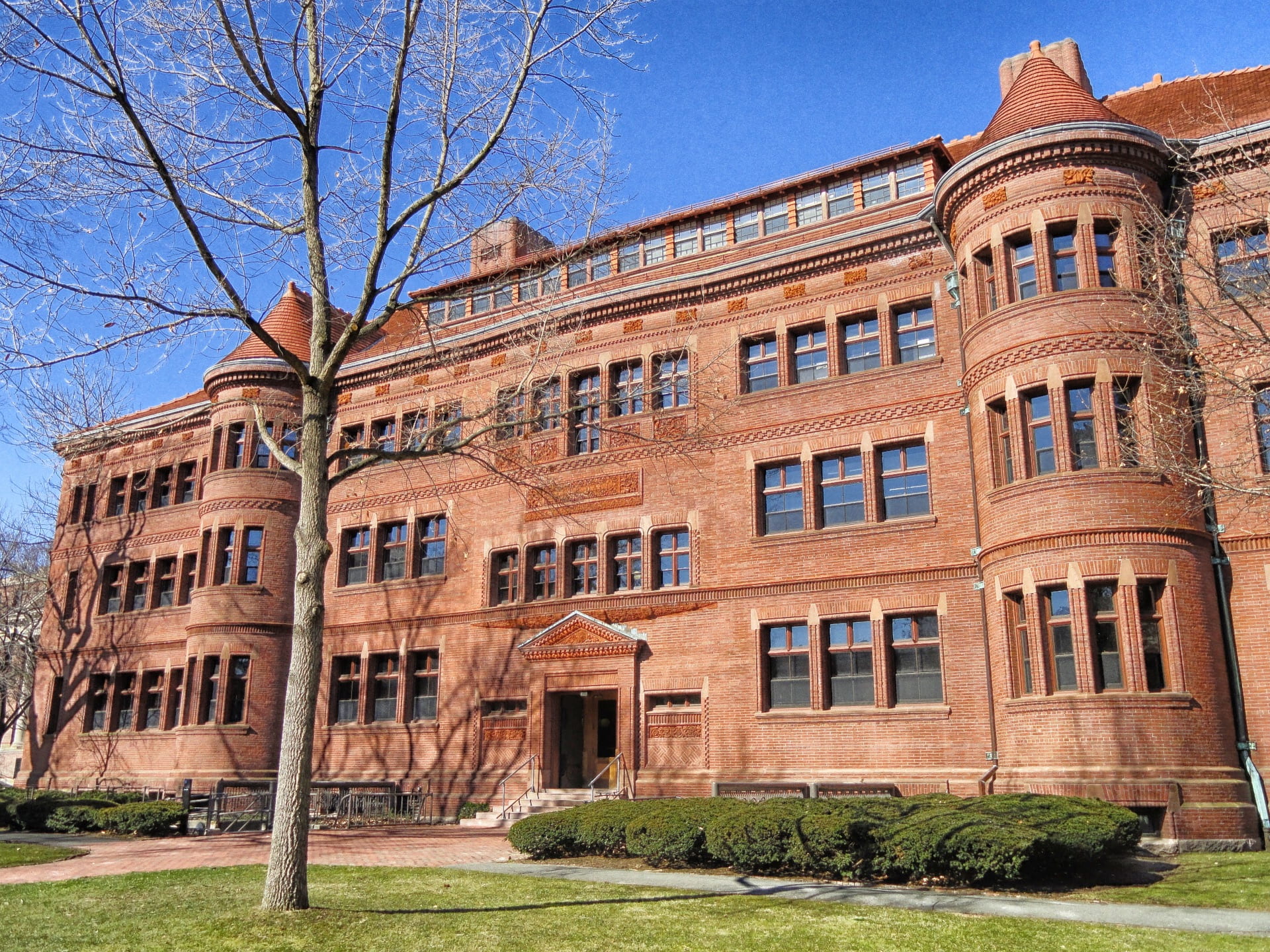Click here for plain text version
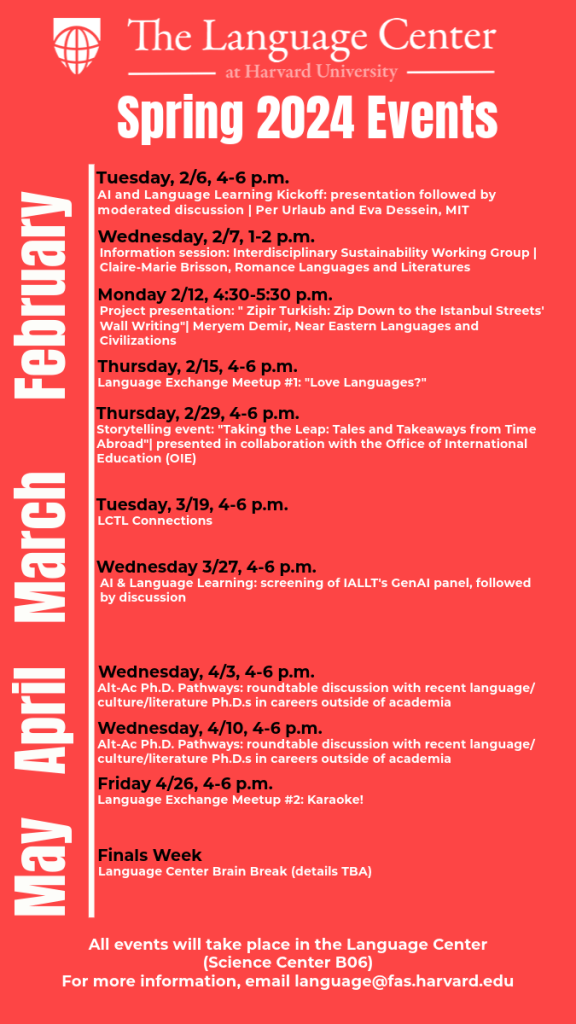
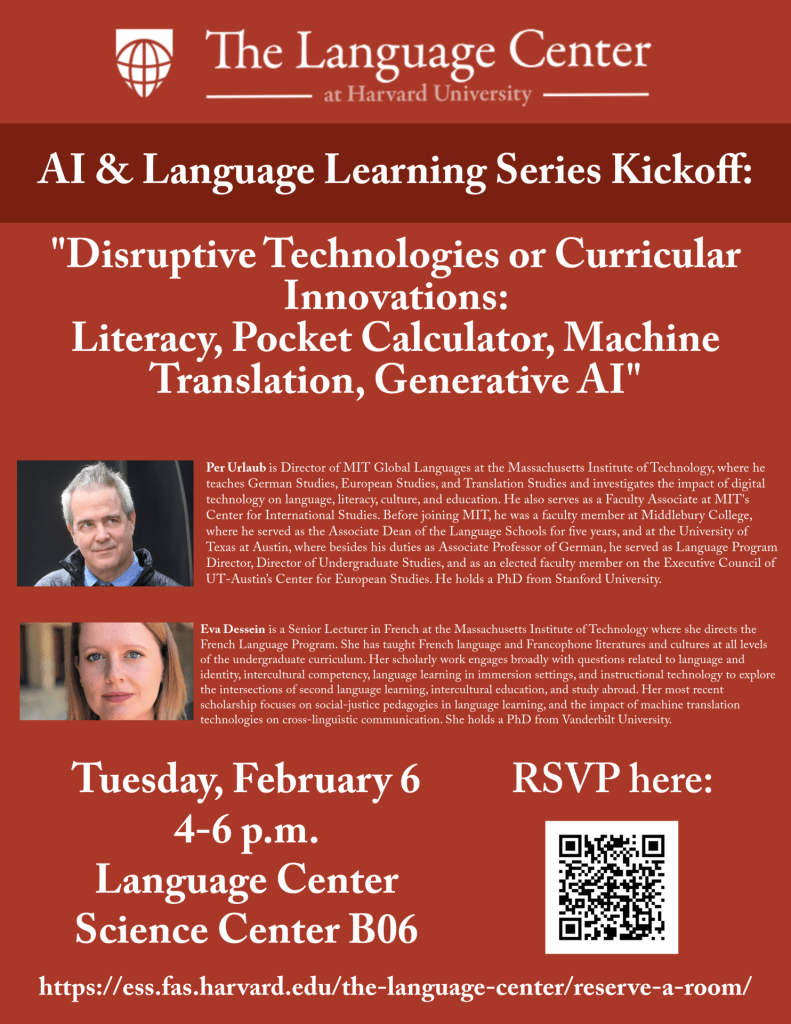
Abstract: This talk is based on the premise that a historic reflection on the relationship between education and technology can help us to better understand and predict the impact of current and future generative AI technologies on language and humanities education. In the first part of our talk, we will set the stage by offering three vignettes on the perceptions among educators of three potentially disruptive innovations: literacy, the pocket calculator, and machine translation. The starting point of this essay is Socrates’ negative perception of an innovation that was relatively new in his times and that he perceived as a disruptive thread to the educational enterprise: literacy. We will then consider two technologies that have impacted society in recent decades: the pocket calculator and machine translation. We will show that the successful integration of the pocket calculator into mathematics education relied on a shift away from aiming at independent arithmetic accuracy to teaching problem-solving through human-machine partnership. This process ultimately advanced mathematics education. We will argue that many language educators are currently engaged in a similar shift and are developing approaches to integrate machine translation applications productively into the curriculum as the field gradually shifts from condemnation to acceptance. Although our field is far from having embraced the presence of Google Translate in our classrooms, we observe clear signs that the process from rejection to acceptance and embrace is underway.
After having established this pattern from rejection to acceptance and embrace, we will turn to generative AI, and in particular focus on chatbot technologies based on large language models. We will argue that language and humanities instructors will go through a similar pattern from rejection to acceptance and embrace as they struggle with the arrival of a new technology that today for many educators seem to disrupt their teaching process. But we will also argue that ChatGPT and future AI-powered technologies can only be successfully integrated into language and humanities classrooms, if educators, like their colleagues in STEM fields several decades earlier, will rethink learning objectives vis-à-vis this technological paradigm shift. In closing, we will share our observation that this rethinking is already underway. Not only will generative AI technologies become uncontroversial realities in a wide range of humanities classrooms, but we also believe that this development has the potential to generate deeper intellectual engagement, to enhance critical thinking, to generate stronger communicative abilities, and to result in overall greater learning opportunities for students and superior knowledge production and dissemination for scholars. This process will take time and needs to be led by forward-thinking institutions and guided by innovative educators and humanists who feel encouraged and empowered by their professional communities to push the traditional boundaries of their fields.
